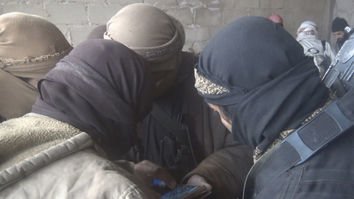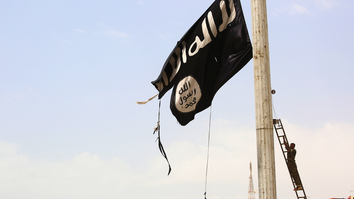NANGARHAR PROVINCE -- The recent killing of "Islamic State of Iraq and Syria" (ISIS) leader Abu Bakr al-Baghdadi in Syria has revealed deep inconsistencies in the messaging efforts of the group's Khorasan branch in Afghanistan and Pakistan, dubbed ISIS-K.
The significant variance between two articles posted by the semi-official ISIS-K media outlet "Muhammad bin Qasim" seen on Telegram by Salaam Times on October 27, a day after reports surfaced of al-Baghdadi's death, and October 31, when ISIS admitted to its leader's death, suggests the group is struggling with its outreach efforts.
"Lies of the infidels and the work of Satan!" was the way in which "Muhammad bin Qasim" described the news from US authorities about al-Baghdadi's death.
"Today, the infidels spread the news that supposedly the caliph of Muslims Abu Bakr al-Baghdadi has been killed in an American bombing attack. Such news has been heard many times from these corrupt and dishonest people, and it will continue," read the article.
"According to our information, a group of Harasuddin was bombed in Idlib," not al-Baghdadi, it continued, referring to another militant group in Syria.
"Our beloved Abu Bakr Al-Baghdadi continues to issue orders to the world's Mujahideen," it said.
Meanwhile, official ISIS media outlets remained silent after news of the leader's death, which suggests a lack of communication and co-ordination between ISIS "central" and its ISIS-K affiliate.
Days later on October 31, when official ISIS outlet al-Furqan released a message admitting al-Baghdadi's death and naming successor Abu Ibrahim al-Hashimi al-Quraishi, "Muhammad bin Qasim" changed its tune.
"Our fight, blood, thirst and hunger are not for Abu Bakr al-Baghdadi but for the sake of God," the outlet said.
"The movement goes forward, and everyone passes his own tests," it said.
Blurred lines, confused message
Part of the problem for ISIS-K is that the line between unofficial and official messaging is blurred because of the use of unofficial media outlets by official ISIS-K figures, such as Sultan Aziz Azim.
Azim, who is the spokesperson of ISIS-K, creates publications on his own but does not brand them as official materials. The group's unofficial outlets then share Azim's materials with their followers.
Another problem is that unofficial ISIS-K media outlets break ISIS media rules by claiming terrorist acts that ISIS's headquarters has not claimed.
These ongoing difficulties the group is experiencing come just days after recent chats on pro-ISIS-K groups on Telegram reveal the deepening splits between ISIS-K members over who they consider infidels.
The messages, posted starting September 20, expose rifts on whether other militant groups, such the Tehreek-e-Taliban Pakistan (TTP), are apostates.
Lack of trust
The lack of discipline in ISIS-K messaging reflects a group that has essentially gone rogue and abandoned the core rules of ISIS.
The "Muhammad Bin Qasim" outlet never retracted its original article, nor did it explain how its source was so incorrect.
"The Khorasan branch of Daesh has lost most of its leaders and commanders who were leading its operations in Afghanistan. Its members are currently dispersed and disorderly and lack coherent leadership," said Gen. (ret.) Sikander Asghari, a military analyst based in Kabul, using another name for ISIS.
"Because Daesh fighters are facing problems with their leadership and are disorganised, the main branch of Daesh in Iraq and Syria does not trust them," Asghari said. "That's why it did not want to share the news of al-Baghdadi's death with them."
"Ever since the Khorasan branch of Daesh began its operations in Afghanistan, there has been no good communication and co-ordination between the group's main branch and its members in Afghanistan," said Daud Kalakani, a former member of the Wolesi Jirga from Kabul.
"The scale of these miscommunications increased as Daesh fighters in Afghanistan suffered further failures. This has now become an issue of trust between the two sides," said Kalakani.
[Sulaiman from Kabul contributed to this report.]

![The semi-official ISIS-K media outlet 'Muhmmad bin Qasim' uses this picture as its avatar on Telegram. Recent postings suggest major miscommunications between ISIS's main branch and ISIS-K on messaging. [File]](/cnmi_st/images/2019/11/04/20730-mbq-585_329.jpg)







Daesh and Taliban share the same goal...to lie and kill.
Reply1 Comment